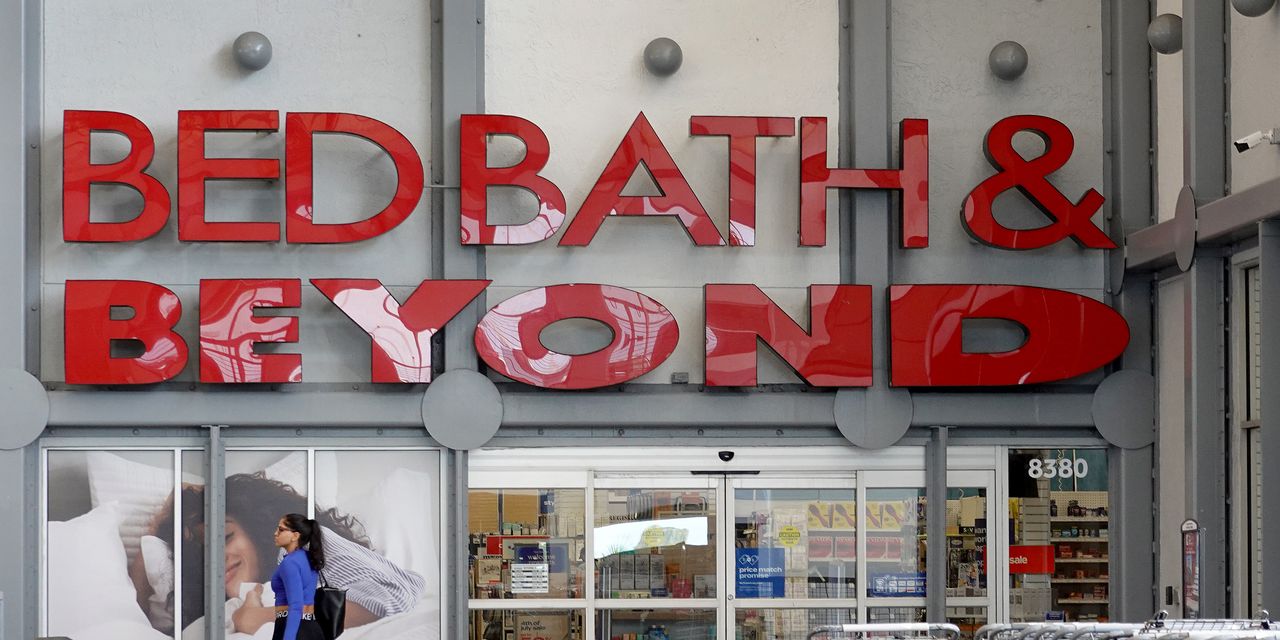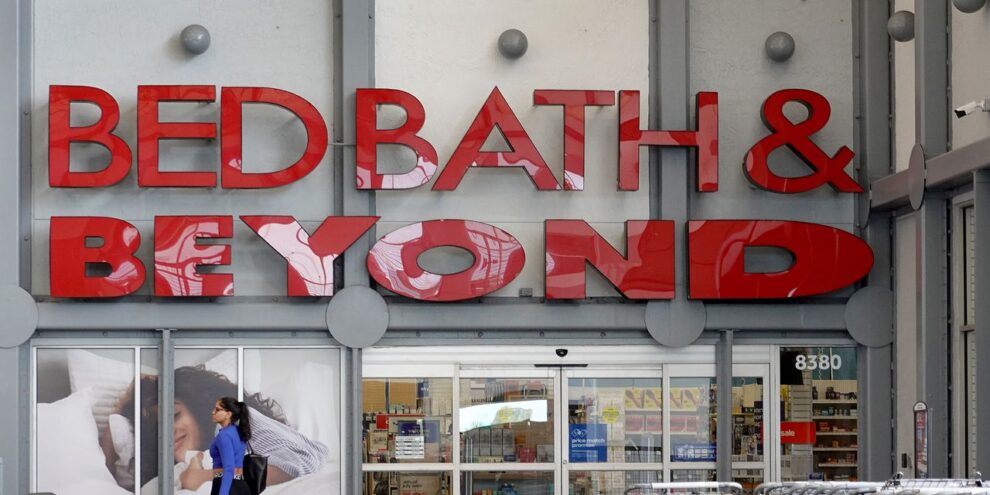
Shares of Bed Bath & Beyond Inc. tumbled Monday below the $1 level, a 30-year low, after the struggling home-goods retailer said it planned to hold a special meeting in which shareholders would vote on whether to allow the company to carry out a reverse stock split, should its board decide to do so.
Shareholder approval would amend Bed Bath & Beyond’s certificate of incorporation to carry out “a reverse stock split of the company’s common stock,” at a ratio in the range of 1-for-5 to 1-for-10. The ratio of the split will be determined by the retailer’s board of directors.
The time and location of the meeting will be announced later, the company said.
“Our proposal for a reverse stock split will enable us to continue rebuilding liquidity to execute our turnaround plans and better position the Company financially,” Sue Gove, Bed Bath & Beyond’s chief executive, said in a statement late Friday.
The former “meme” stock BBBY, -2.83% tumbled 13.6% in premarket trading Monday.
The company said the split would “not have any effect” on its value or shareholders’ proportional ownership, and that it could “revoke the proposal and cancel the special meeting at any time if it determines that the reverse stock split is no longer in the best interests of the Company and its shareholders.”
Company’s that announce plans for reverse stock splits often see their shares drop, as that move is often reserved for companies concerned that their stock price could, or have fallen below, levels below required to maintain listing requirements. A 1-for-5 reverse split would effectively multiply the stock’s price by 5. Read more about reverse stock splits.
One requirement for a stock to be listed on the Nasdaq exchange, where Bed Bath & Beyond’s stock is currently listed, is for a bid price of at least $1.
The company’s plan for a reverse split comes a couple of weeks after the retailer said it received gross proceeds of $135 million from exercising preferred stock warrants that were issued as part of a public equity offering, which prompted a KeyBanc Capital analyst to call it one of the “most unusual financing situations” witnessed in more than 20 years.
The stock was heading toward the lowest price seen on a split-adjusted basis since July 1992, or a month after the company went public. It has plummeted 62.0% over the past three months, while the S&P 500 index SPX, -1.10% has gained 2.5%.
—Tomi Kilgore contributed to this report.












